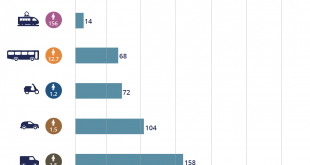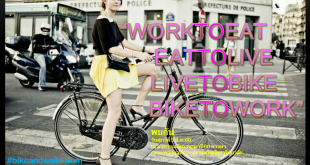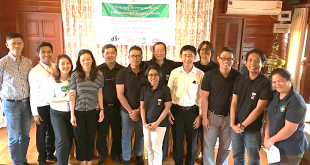In the brief meeting, the minister revealed that he was interested to use walking and biking as a mode of transport to tackle problems faced by cities. He said that “I am going to use them not for solving traffic congestion problem, but to change Bangkokians’ mode of mobility, connecting walking and biking with public transport – bus, boat and train, whether it is BTS (aboveground Bangkok Transit System) or MRT (underground Mass Rapid Transit system)”.
The TCC representatives also had longer discussion with the minister’s staff team and found that they were very interested in walking and biking as a mode of transport. However, it seems that they just began to have a thought about it; there was no clear project in their mind yet or they might have it but kept away from TCC. Nevertheless, being called to meet a cabinet minister as a representative of cycle users in daily life is a really good sign that one day Thailand or Bangkok could become a country/city that is friendly for walking and biking in everyday life.
TCC used this excellent opportunity to make certain proposals that we thought would benefit Thai society to the minister as follows:
1. Tunnels:A TCC’s opinion survey found that pedestrians of all age, sex, income and occupation groups recognize and prefer to cross streets by using tunnels rather than pedestrian bridges and zebra crossings. TCC therefore proposed the minister to consider this option. However, TCC also proposed that, as tunnel construction was costly, tunnels should be used only where they are necessary, such as at the Victory Monument, Pratunam area, Phra Khanong area and Banglampoo area, as they would be convenient for disabled persons and elderly people as well.
2. Walkability of footpaths: Everyone now knows that footpaths in Thailand are not walkable or inconvenient to use. Improvement of footpaths to make them walkable will be a support of good deeds. TCC then proposed the minister to take it into consideration.
3. Public bicycles: TCC proposed the government to spend 600 million Baht to purchase 200,000 bicycles (3,000 Baht each) and place them around Bangkok for public use without charge. This will create a sudden critical mass of bicycles and bicycle users. A budget of 600 million Baht is a small sum in comparison with hundreds of billion Baht invested in electric train systems and it would be socially cost effective. These mass of bicycles would become feeders for all systems of public transport too.
4. Footpaths and bicycle lanes in neighbourhoods: Emphasis would be to make these short bicycle lanes safe and as straight as possible. There is no need to construct cross-city bicycle lanes in this early stage as it is not ready yet in several aspects.
These are TCC’s four main proposals. Three cheers for this opportunity. TCC would follow up and report any progress to the public.
Octorber,2012


 ชมรมจักรยานเพื่อสุขภาพแห่งประเทศไทย ชมรมจักรยานเพื่อสุขภาพแห่งประเทศไทย
ชมรมจักรยานเพื่อสุขภาพแห่งประเทศไทย ชมรมจักรยานเพื่อสุขภาพแห่งประเทศไทย



